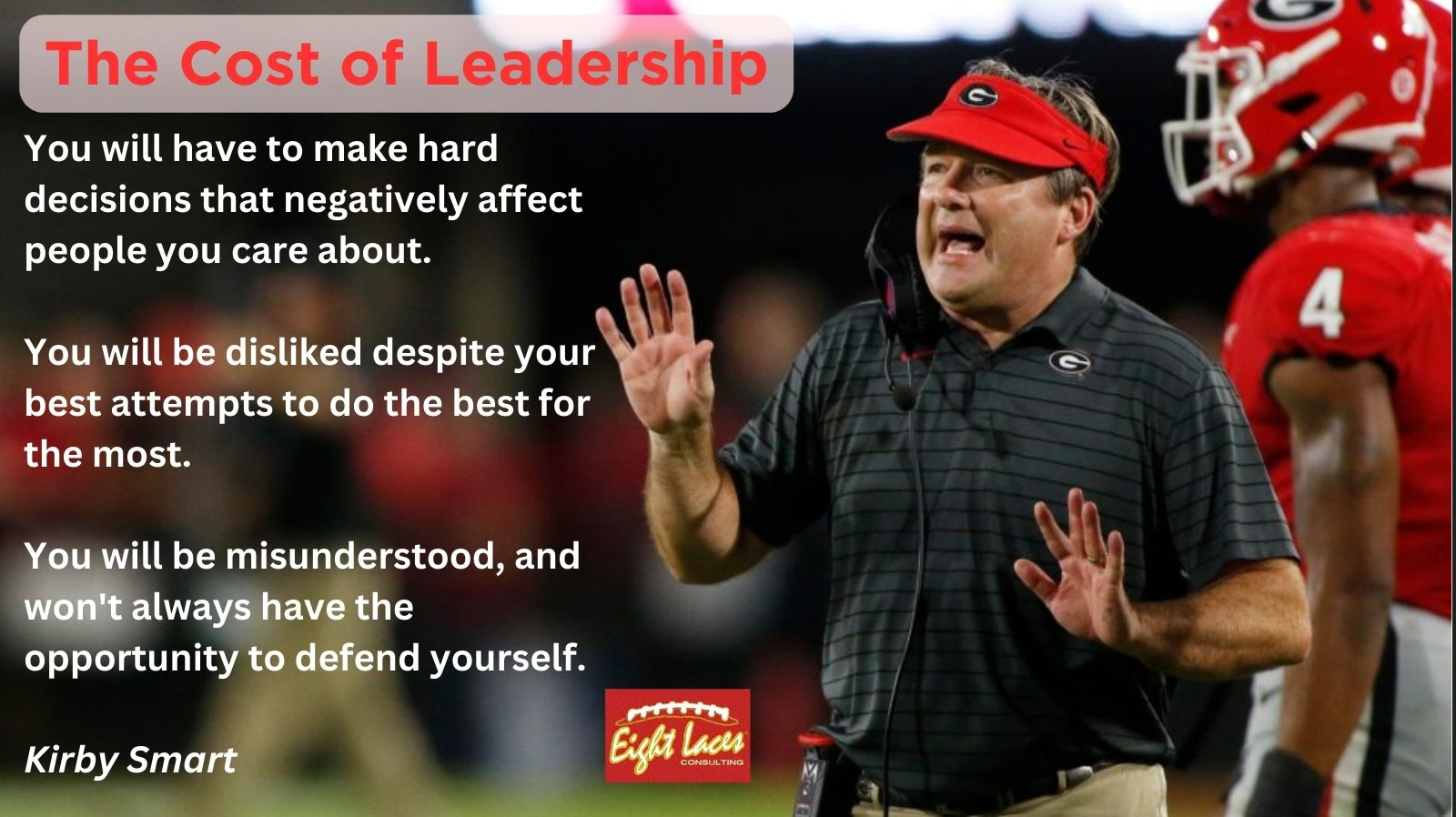Kirby Smart with a fundamental fact of life.
“Fundamental fact of life:
If you’re operating on a different wavelength in life, you cannot expect those operating on a different frequency to resonate with, understand, or support you.
You’ll find that it will even cause people to resent you.
The right people won’t, though.”
-Ray Zingler on Twitter
Kirby Smart said it so simply and beautifully in the SEC presser earlier this year on ‘The Costs Associated with Leadership’:
“You will be disliked, despite your best attempt to do the best for the most.”
On the surface it makes no sense.
How could any rational human not resonate with, understand, or support someone who is working tirelessly to do the best they can for others?
To take it a step further, how could any rational human outright dislike an INTENTIONAL difference maker? What is the rationale behind it?
The fact of the matter is that there is no rationale behind it.
But here is what I’ve learned:
The reason people will not resonate with, understand, support, or even like you if you are operating on a different wavelength than them is because the concept of what you’re doing is completely foreign to them. They don’t at all understand the depth of it.
The reason they lack rationale in regards to what you’re doing is not actually because they dislike you, though. It may seem that way, but that isn’t the case. They simply cannot rationalize your outputs and the difference that you’re making. They don’t dislike you for this, they dislike the fact that they themselves can’t do what you’re doing. In reality, they don’t hate you, you’re just an easier target they can use as camouflage from their own insecurity.
So instead of seeking to resonate, understand, and support what they don’t understand, they often belittle or criticize with other people who they do rationalize with because of the shared operational wavelength they are on in life.
It’s the whole:
Small minds talk about people, average minds talk about events, great minds talk about ideas and execution, adage.
This is why often it is the highest achievers who seem to run with the smallest circles. It’s not because they lack people skills or the desire to be social.
It’s a math problem.
The higher you climb, the smaller the pool of like-minded individuals there is to run with.
That’s why every loser out there has a million buddies.
But the winners, despite being vastly smaller in number, are continuing to win.
You don’t need a big circle. You need the right circle.
Many won’t understand you, but the right ones will.



